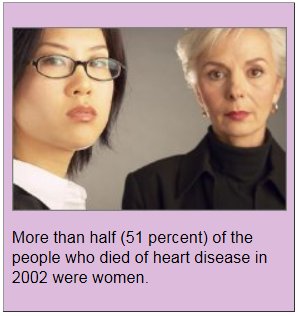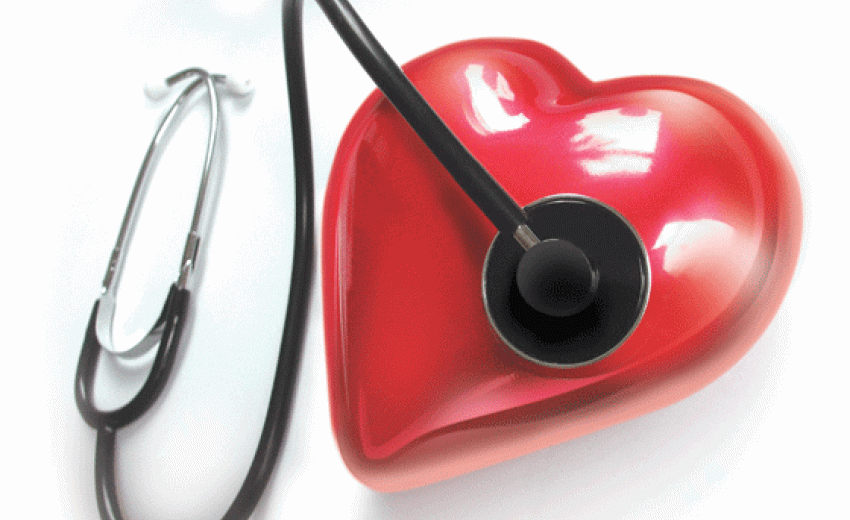The Top 15 Signs of Heart Disease
Everyone Needs to Know
©2015 Health Realizations, Inc. Update
Heart disease is the leading cause of death for both men and women in the United States, which resulted in 29 percent of all U.S. deaths, according to the U.S. Centers for Disease Control and Prevention (CDC).
 Meanwhile, more than one-third (37 percent) of
adults reportedly have two or more of the six risk
factors for heart disease and stroke, which include:
Meanwhile, more than one-third (37 percent) of
adults reportedly have two or more of the six risk
factors for heart disease and stroke, which include:
- High blood pressure
- High cholesterol
- Diabetes
- Smoking
- Physical inactivity
- Obesity
What Exactly is Heart Disease?
Heart disease is actually a general term used to describe various heart problems. The most common type of heart disease in the United States is coronay artery disease (CAD), which occurs when your heart's arteries buildup plaque and become hardened and narrowed. This reduces blood flow to the heart and can result in a heart attack.
Other common heart conditions include angina, heart failure, arrhythmia, peripheral artery disease and more.
Signs of Heart Disease
Conventional risk factors such as those listed above are well-known signs that you may be at risk of heart disease. However, there are many other, lesser known, symptoms that can also signal heart disease risk.
In fact, studies have found that up to 97 percent of women with acute heart disease experienced prodromal (pre-heart-attack) symptoms more than one month (and sometimes as much as two years) before the attack.
These include:
- Changes in mood, including irritability, depression, anxiety and insomnia,
according to researchers from the University of Modena and Reggio Emilia in Italy.
- Elevated levels of inflammation-related substances in your body, including
C-reactive protein, fibrinogen, and homocysteine.
- Unusual fatigue and/or insomnia
- Shortness of breath
 Indigestion
Indigestion- Frequent headaches
- Racing heart
- Vision changes
- Changes in appetite
- Aching arms
- Chest pain
- Pressure in the chest, stomach, arms, back, neck or jaw
- Cold sweats
- Nausea
- Lightheadedness
There is much controversy over whether people with few risk factors need to have extensive testing for heart disease. Most experts agree that you should find out the following three numbers, and make sure they are within the healthy levels that your health care provider recommends:
- Cholesterol (good and bad) level
- Blood-sugar level
- Blood-pressure level
- A CRP level lower than 1 .? mg/L indicates a low risk of developing heart disease
- A CRP level between 1.0 and 3.0 mg/L indicates an average risk
- A CRP higher than 3.0 mg/L indicates a high risk
What you Need to Know about Nutrition tor Healthy Heart Support
Three foundational nutrients known for supporting a healthy heart include CoQ10, Magnesium and Taurine which are easily absorbed and highly effective for supporting several aspects of heart health and blood pressure.
For more targeted nutritional support, the combination of well-known nutrients carnitine and ribose are impactful too for enhancing heart health.
In addition to a lifestyle that discourages unhealthy habits like smoking and excessive alcohol, promotes healthy physical activity, smart weight management and emphasizes diets that keep blood sugar levels healthy, smart nutritional supplementation can make a big difference in how long you maintain a healthy heart.
Sources
Medical News Today
University of Arkansas for Medical Sciences
Centers for Disease Control and Prevention
American Heart Association





